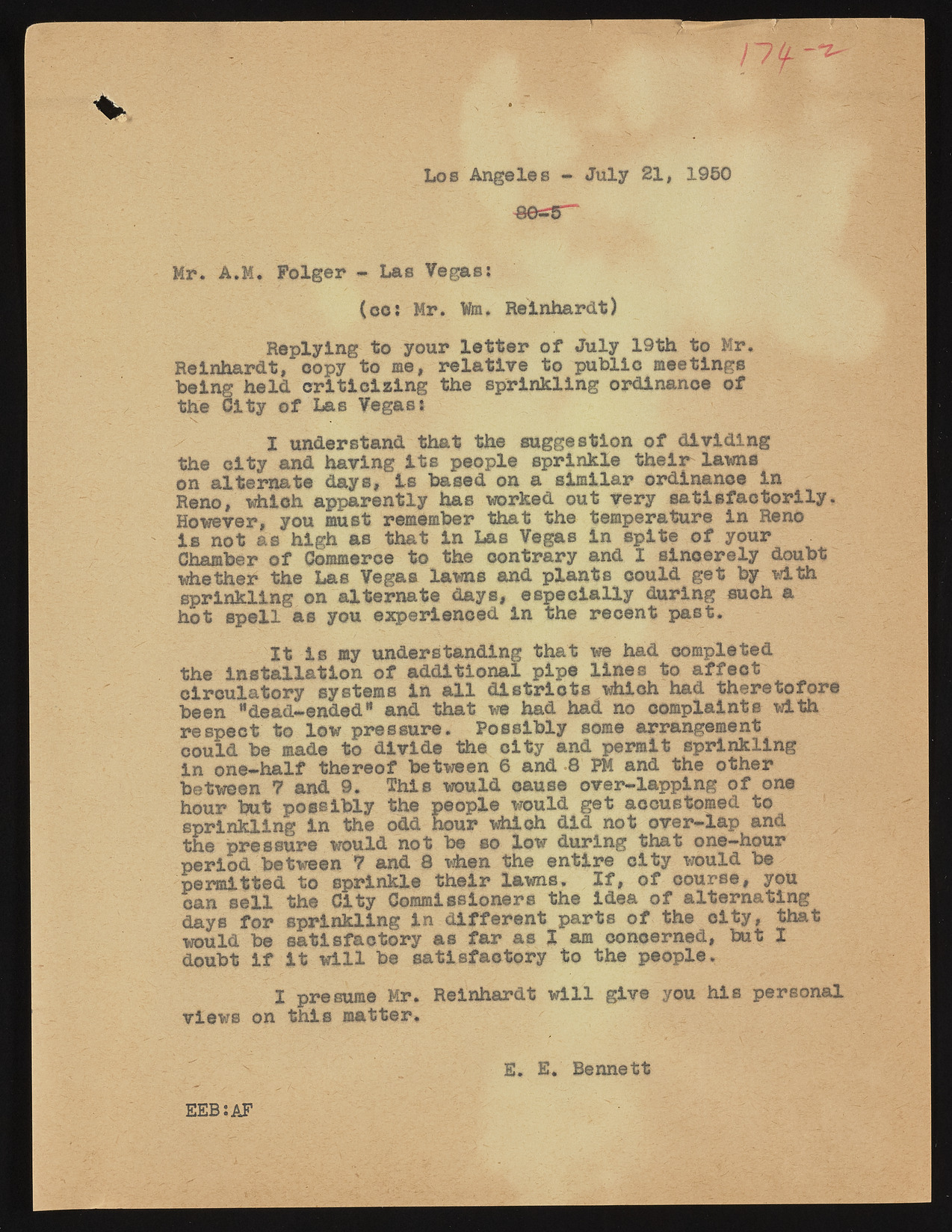Copyright & Fair-use Agreement
UNLV Special Collections provides copies of materials to facilitate private study, scholarship, or research. Material not in the public domain may be used according to fair use of copyrighted materials as defined by copyright law. Please cite us.
Please note that UNLV may not own the copyright to these materials and cannot provide permission to publish or distribute materials when UNLV is not the copyright holder. The user is solely responsible for determining the copyright status of materials and obtaining permission to use material from the copyright holder and for determining whether any permissions relating to any other rights are necessary for the intended use, and for obtaining all required permissions beyond that allowed by fair use.
Read more about our reproduction and use policy.
I agree.Information
Digital ID
Permalink
Details
More Info
Rights
Digital Provenance
Publisher
Transcription
Los Angeles - July 21, 1950 / 7 f Mr. A.M. Folger - Las Vegas: (oo: Mr. Wm. Reinhardt) Replying to your letter of July 19th to Mr. Reinhardt, copy to me, relative to public meetings being held criticizing the sprinkling ordinance of the 01ty of Las Vegasi I understand that the suggestion of dividing the city and having its people sprinkle their lawns on alternate days, is based on a similar ordinance in Reno, which apparently has worked out very satisfactorily. However, you must remember that the temperature In Reno is not as high as that In Las Vegas in spite of your Chamber of Commerce to the contrary and I sincerely doubt whether the Las Vegas lawns and plants could get by with sprinkling on alternate days, especially during such a hot spell as you experienced In the recent past. It is my understanding that we had completed the installation of additional pipe lines to affect circulatory systems in all districts which had theretofore been “dead-ended* and that we had had no complaints with respect to low pressure. Possibly some arrangement could be made to divide the city and permit sprinkling in one-half thereof between 6 and 8 PM and the other between 7 and 9. This would cause over-lapping of one hour but possibly the people would get accustomed to sprinkling in the odd hour which did not over-lap and the pressure would not be so low during that one—hour period between 7 and 8 when the entire city would be permitted to sprinkle their lawns. If, of course, you oan sell the City Commissioners the Idea of alternating days for sprinkling in different parte of the city, that would be satisfactory as far as J am concerned, but I doubt if it will be satisfactory to the people. I I presume Mr. Reinhardt will give you his personal views on this matter. 3. 3. Bennett EEBJAF

